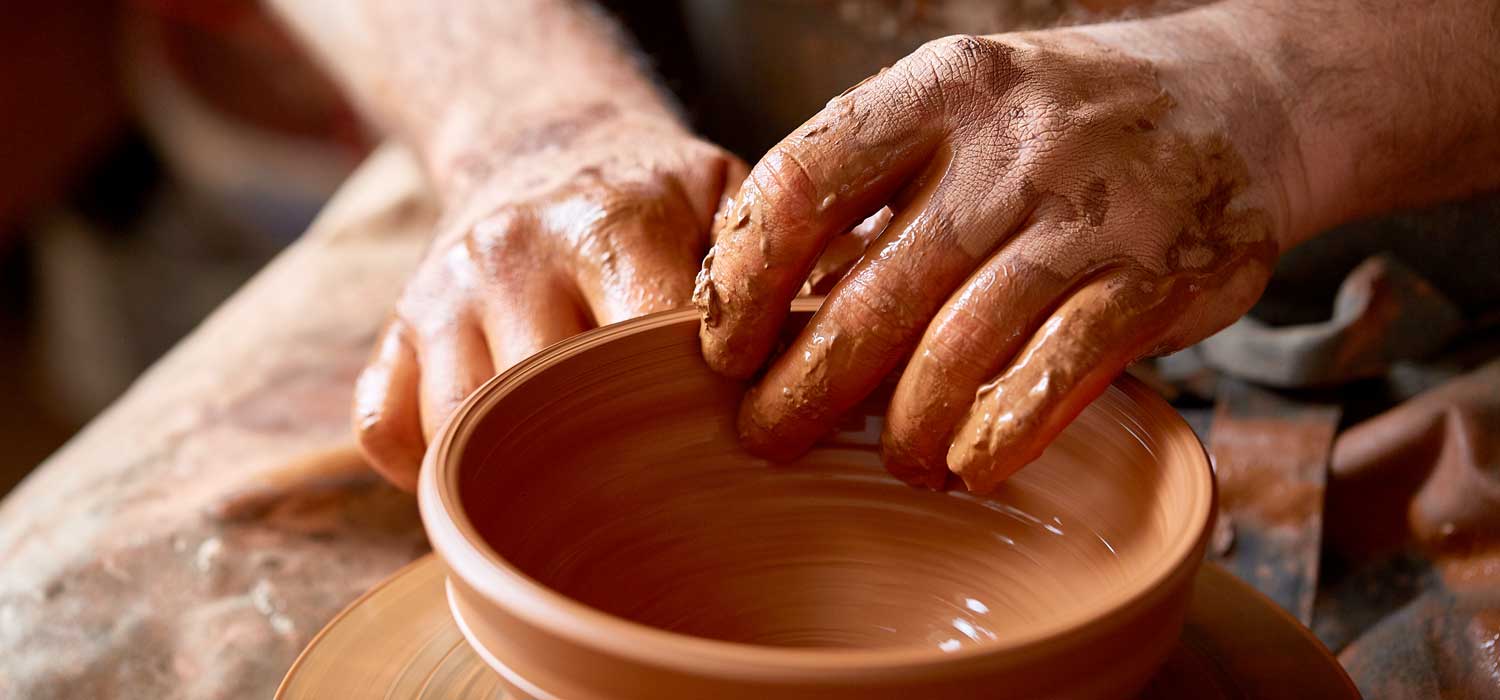In an era where mass production often overshadows individual artistry, traditional artisan workshops stand as a testament to the enduring value of craftsmanship and heritage. These workshops are not merely places where goods are made; they are the heartbeats of cultural preservation and creative mastery. From the intricate weaving looms of rural villages to the skilled metalwork of urban studios, traditional artisan workshops offer a fascinating glimpse into age-old techniques that have been honed over centuries. Exploring these spaces provides a deeper appreciation for the artistry and dedication that define these timeless crafts.
The Legacy of Japanese Pottery: A Journey into Ceramics
Japan is renowned for its traditional artisan workshops that produce some of the world’s finest ceramics. One of the most celebrated areas is Arita, located in the Saga Prefecture. Known for its porcelain, Arita has a history that dates back to the early 17th century. Traditional artisan workshops here continue to practice techniques that have been passed down through generations. Visitors can witness the meticulous process of creating delicate porcelain pieces, from the initial shaping on the potter’s wheel to the intricate hand-painted designs. The dedication to preserving craftsmanship heritage is evident in every piece produced, making Arita’s workshops a must-visit for those interested in traditional arts.
The Art of Venetian Glassblowing: Crafting Beauty from Fire
Venice, Italy, is synonymous with exquisite glassblowing, a craft that has been perfected over centuries. Traditional artisan workshops in Venice, particularly in the Murano district, are renowned for their stunning glass creations. The process of glassblowing involves heating molten glass to high temperatures and shaping it into intricate forms using traditional techniques. Visitors to Murano can observe skilled artisans at work, crafting everything from delicate vases to elaborate chandeliers. The rich history and exceptional craftsmanship of Venetian glassblowing make these workshops a prime example of how traditional artisan practices can produce world-renowned art.

credit: headout.com
The Secrets of Moroccan Carpets: Weaving Tradition into Textiles
In Morocco, traditional artisan workshops dedicated to carpet weaving are vital to the country’s cultural heritage. Cities like Fes and Marrakech are home to workshops where artisans use age-old techniques to create stunning, hand-woven carpets. Each carpet tells a story through its intricate patterns and vibrant colors, reflecting the history and traditions of the region. The craftsmanship involved in these textiles is remarkable; artisans often use natural dyes and traditional weaving methods that have been passed down through generations. Visiting a Moroccan carpet workshop offers a unique opportunity to appreciate the artistry and skill involved in creating these beautiful, culturally significant pieces.
Crafting Handcrafted Jewelry in Jaipur: A Tradition of Elegance
Jaipur, India, is famous for its traditional artisan workshops that specialize in handcrafted jewelry. Known for its rich history of gem cutting and jewelry design, Jaipur’s workshops produce stunning pieces that showcase intricate designs and exceptional craftsmanship. Artisans use traditional techniques such as enameling, engraving, and stone setting to create jewelry that is both elegant and unique. The city’s workshops provide an immersive experience into the world of jewelry making, offering visitors a chance to see how traditional skills are applied to create masterpieces of both beauty and cultural significance.
The Timeless Art of French Savoir-Faire: Leather Crafting in Paris
Paris, France, is renowned for its luxury leather goods, and traditional artisan workshops in the city are at the forefront of this craftsmanship heritage. Workshops specializing in leather crafting use time-honored techniques to produce high-quality products such as handbags, belts, and shoes. Skilled artisans work with premium leather, employing methods that include hand-stitching, embossing, and polishing to create items of exceptional quality. These workshops not only uphold the tradition of French craftsmanship but also contribute to the city’s reputation as a global fashion capital.
The Craft of Swiss Watchmaking: Precision and Tradition
Switzerland is synonymous with precision watchmaking, and traditional artisan workshops in the country are renowned for their expertise in this field. The art of Swiss watchmaking involves intricate craftsmanship and attention to detail, with workshops specializing in creating timepieces that are both functional and beautiful. Visitors to Swiss workshops can witness the meticulous process of assembling watch movements, setting gemstones, and crafting watch cases. The dedication to preserving the art of watchmaking ensures that these workshops remain at the pinnacle of craftsmanship, combining traditional techniques with modern innovations.
Exploring Traditional Artisan Workshops in Mexico: From Pottery to Textiles
Mexico is home to a diverse range of traditional artisan workshops, each reflecting the country’s rich cultural heritage. In places like Oaxaca, artisans are known for their colorful pottery and intricate textiles. Workshops in these regions often use traditional techniques that have been practiced for centuries, such as hand-painting designs on pottery and weaving vibrant patterns into textiles. These workshops not only produce beautiful crafts but also serve as cultural hubs where visitors can learn about the traditions and stories behind each piece. Experiencing these workshops offers a valuable insight into Mexico’s artistic legacy and craftsmanship.
The Art of Korean Hanji Paper: Crafting with Tradition
Korea’s traditional artisan workshops specializing in Hanji paper offer a fascinating glimpse into an ancient craft. Hanji is a type of paper made from mulberry bark, known for its durability and unique texture. Artisans in Korea use traditional methods to produce Hanji paper, which is then used for various applications including calligraphy, painting, and even traditional clothing. Workshops dedicated to Hanji paper provide visitors with the opportunity to see the meticulous process of paper-making and to appreciate the craftsmanship involved in this time-honored art form.
The Rich Tapestry of Tibetan Thangka Painting: Spiritual Artistry
Thangka painting is a traditional Tibetan art form that combines intricate designs with spiritual symbolism. Workshops in Tibet and Nepal continue to produce these sacred artworks, which are used in religious ceremonies and meditation practices. Artisans use natural pigments and gold leaf to create detailed paintings that depict Buddhist deities and spiritual themes. Visiting a Thangka workshop provides an insight into the spiritual and artistic significance of this ancient craft, highlighting the dedication required to preserve and practice this sacred art form.
Handcrafted Pottery in the American Southwest: A Legacy of Native Art
In the American Southwest, traditional artisan workshops produce handcrafted pottery that reflects the rich cultural heritage of Native American tribes. Workshops in areas like Santa Fe and Hopi Reservation are known for their distinctive pottery styles, which often feature intricate patterns and symbolic designs. Artisans use traditional techniques such as coil building and hand-painting to create pottery that is both functional and decorative. Exploring these workshops offers a deeper understanding of the cultural significance and craftsmanship behind Native American pottery.
Exploring traditional artisan workshops provides a window into the heart of craftsmanship and heritage. These workshops are not just places where goods are made; they are vibrant centers of cultural preservation and artistic expression. Whether you are drawn to the intricate ceramics of Japan or the vibrant textiles of Morocco, visiting these workshops offers a unique opportunity to connect with the artistry and dedication that define traditional crafts.


